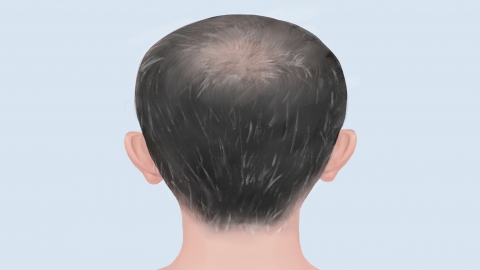What are the risks and side effects of hair transplantation?
Generally, hair transplantation refers to a surgical procedure that involves extracting healthy hair follicles and implanting them into the areas affected by hair loss, allowing them to grow naturally in the new location. The usual reference price for hair transplant surgery ranges from 30,000 to 120,000 yuan per session. Noticeable improvement typically occurs 3-6 months after the surgery, although symptoms such as swelling and pain may accompany the procedure. Potential side effects of hair transplant surgery may include infection, bleeding, follicular damage, skin numbness, and scar formation. A detailed analysis is as follows:

1. Infection
Hair transplant surgery involves making incisions on the scalp. If the surgical environment does not meet standards or sterilization procedures are not strictly followed, bacteria may enter the wound and cause infection. Infection can lead to symptoms such as redness, swelling, pain, and fever. In severe cases, it may affect the survival of the transplanted follicles, ultimately resulting in surgical failure.
2. Bleeding
During the surgery, small blood vessels in the scalp may be damaged, and minor bleeding is generally considered normal. However, if the surgeon accidentally injures larger blood vessels due to improper technique, or if the patient has an underlying coagulation disorder, excessive bleeding may occur, potentially leading to hematoma formation and delayed postoperative recovery.
3. Follicular Damage
During the extraction and implantation of hair follicles, improper technique by the surgeon may cause damage to the follicles, rendering them inactive. This can prevent normal hair growth, reduce the success rate of the hair transplant, and compromise the overall outcome.
4. Skin Numbness
The surgical procedure may damage nerve endings in the scalp, leading to abnormal sensations such as numbness or tingling in the affected area. Typically, these symptoms subside gradually over time after surgery, although some patients may experience prolonged numbness.
5. Scar Formation
Scarring may occur if the area from which follicles were extracted or the transplanted region sustains accidental injury. Additionally, improper postoperative care may result in visible scarring, which can affect aesthetic outcomes.
In daily life, individuals considering hair transplantation are advised to choose reputable and certified hair transplant institutions. Preoperative communication with the surgeon is essential to understand one's individual condition and potential surgical risks. Postoperatively, strict adherence to medical instructions for recovery is crucial, and any unusual symptoms should be promptly evaluated by a healthcare professional.






